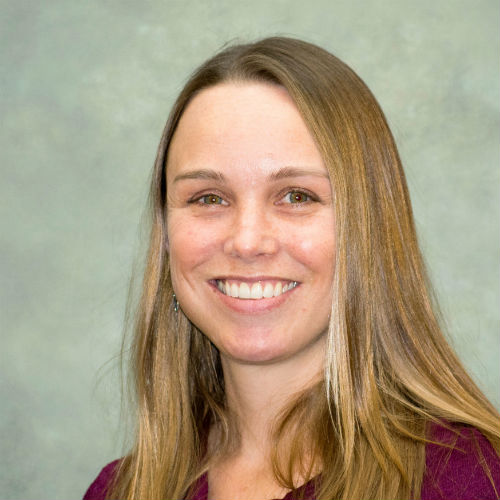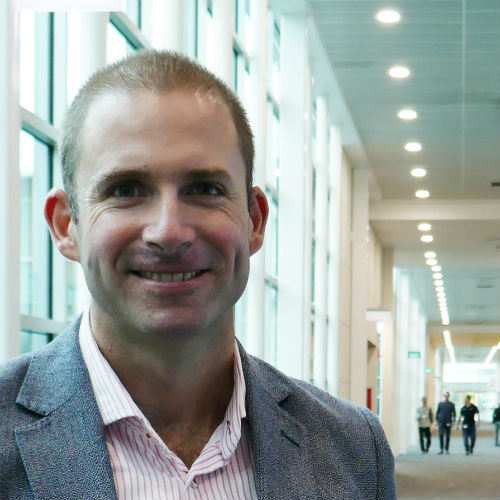Sarah Hendrikx
Environmental consultant
BSc(Hons) Well

What have you been doing since graduating?
I have worked in various environmental science and science outreach positions, including at Landcare Research, Environment Canterbury, environmental consultancies in both New Zealand and the United States, Montana State University, and with the World Bank.
What's been a highlight of your career so far?
I have travelled to some amazing places as an environmental scientist, including remote parts of Fiordland and the West Coast, the Dry Valleys of Antarctica, Montana, Viet Nam, Tonga and, most recently, to Kiribati and Christmas Island.
What is your current job, and what do you love about it?
I am currently working as an environmental consultant based in Bozeman, Montana. Recent projects have included environmental permitting for The North Face Expedition Antarctica and environmental safeguards for the World Bank in the Pacific. I love the flexibility of my job and the challenges of working with a team of specialists, many of whom are based remotely. I get to travel to some extremely remote and interesting places with teams of dedicated and passionate people.
Recently, I worked as part of a World Bank team on a sustainable fisheries project in Tonga (Tonga Pathway to Sustainable Oceans). The people I worked with in Tonga are incredibly hardworking and passionate about restoring and sustainably managing fish populations for future generations.
What do you think are some of the big challenges facing society in terms of sustainability?
The biggest challenges I see in my profession are poverty, uneven distribution of resources, and climate change impacts. My recent work with small island developing states in the Pacific has shown me that it is critical that sustainable development be inclusive and environmentally sound in order to assist our most vulnerable in the long term. Climate change is a global problem, but it will not be uniform with regard to its impacts—developing nations may be hardest hit by climate change impacts due to poverty and lack of access to resources.
What advice do you have for current students?
Be your own best advocate, at university and in other aspects of your life. No one knows your skill set and your positive qualities better than you do.
Nic Bishop
Chief sustainability officer at Circularity—Fisher and Paykel Healthcare, Auckland
BSc, BCA Well

How would you describe your student experience at the University?
I found student life a good mix, with a diverse student group and plenty of activities to be involved in. I’ve always loved how the University is such a part of Wellington, with everywhere within easy walking distance. The orientation week concerts were always good and I remember seeing Supergroove and Shihad, which was pretty cool.
What have you been doing since graduating?
I’ve been lucky to spend some time travelling and living in parts of South America and Asia and, since graduating, I’ve held a number of sustainability roles. I’ve got two amazing children who inspire me every day to work harder at what I do.
What are some of the challenges of your job?
The main challenges of my role relate to the global context of my organisation. We sell into more than 120 countries, so I need to be aware of global environmental law, developing norms, and customer and investor expectations. Decoupling economic growth from environmental impact underpins everything my team does. We aim to position climate change as a design challenge where we need to design carbon out of our organisation.
What do you think are some of the big challenges facing society in terms of sustainability?
The key sustainability challenge for our generation is climate change, which unfortunately is closely followed by the global challenges of clean water availability and waste and recycling system failures.
Even recently, with the tabling of the Zero-Carbon Bill in New Zealand, there has been a noticeable increase in the uptake in awareness and understanding of the global carbon situation. Cross-party support for climate change and carbon legislation will be crucial, and the sooner a global carbon price is agreed, the sooner the global community can find synergy in confronting climate change.
The frog literally has been boiling in the pot, and now is the time when all of us who have studied and now work in sustainability need to use our ability to influence to support positive change.
What was the most useful thing you learnt at university?
The most useful thing I learnt was that you don’t need all the information in your head—but you do need to know where to find it. This is still key to my work life now.
